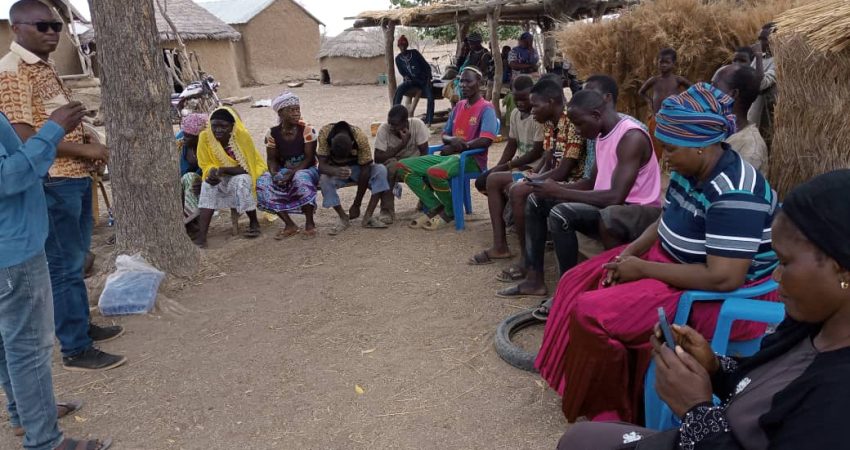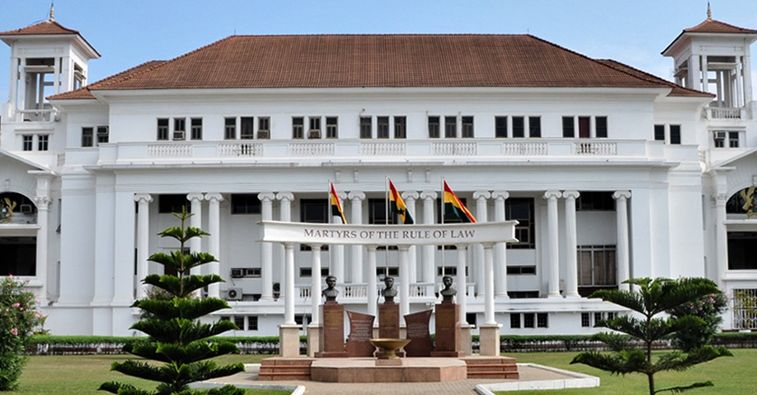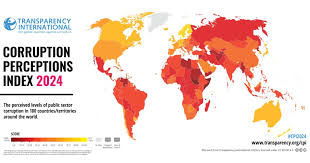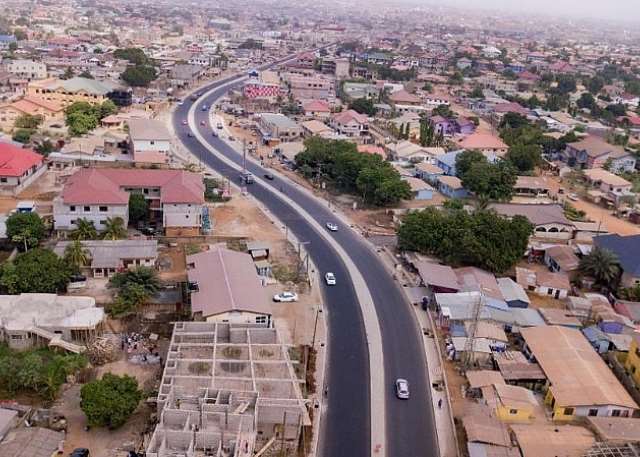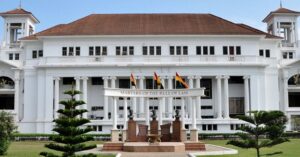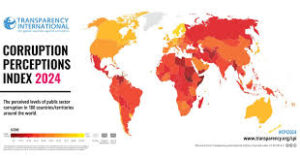Introduction
Occasionally, I get my boots dirty by stepping out of the office to work in other parts of the country, often in remote and rural areas. This time around, I visited several border communities and border posts in the Volta and Oti regions of Ghana to participate in community sensitization forums and radio programs which were being facilitated by volunteers of Ghana Center for Democratic Development’s (CDD-Ghana) project on “Enhancing Citizen Participation in Border Security”, funded by the US State Department through the US Embassy in Ghana. The project’s overall goal is to improve the security awareness of citizens along and across border communities as a proactive step in contributing to improving Ghana’s border security in the face of surging cross-border crimes and external security threats in West Africa. This project was timely and necessary, given that violent extremists have attacked all our neighboring countries. Thus, prompting citizens to become aware of the ever-growing threat of terrorism and violent extremism is the first step in their contribution toward building community resilience.
A critical aspect of the project implemented from September 2019 to March 2022 was the training and deployment of 85 volunteers to selected border districts across the country to facilitate public sensitization and awareness on terrorism, violent extremism, and general security tips in border communities while collaborating with security agencies to fulfill this mandate.
As part of field monitoring in February and March 2022, I interacted with several stakeholders that collaborated with the project volunteers. This included personnel from the Ghana Immigration Service (GIS), Customs Division of the Ghana Revenue Authority (GRA), Ghana Police Service (GPS), National Commission for Civic Education (NCCE), chiefs, radio show hosts, District Assembly members, and opinion leaders to get their impressions and feedback of the project and its engagements that are aimed at raising the security consciousness/awareness of residents in border communities and border districts at large. I was interested in documenting success stories about how the intervention contributed to creating security consciousness among residents.
Observations/Success Stories
- Residents and security agencies found the interventions very useful and wished that the project would continue. Residents in communities that could not directly benefit from the community forum called into the radio discussions and requested a visit from the team to their doorstep. This request was particularly significant because it was evident of the effectiveness of the radio discussions and their impact on listeners.
- The project has allowed security agencies to engage directly with residents in border areas about general security issues, safety tips, preventing violent extremism, the role of the various security agencies, and citizens’ rights and responsibilities, among other valuable topics. Open discussion sessions during community sensitization forums allowed residents to share their thoughts, anxieties, fears, and expectations of the security agencies. The resource persons, particularly officials from the security agencies, whether at a community forum or radio discussion, gave out their phone numbers for residents to contact them on security issues within their communities. This practice proved helpful when two days after a community sensitization forum at Agodeke in the Agortime Ziope District in December 2021, community members intercepted some foreigners in their community who had entered Ghana through illegal borders. They called officials of the GIS to handle the situation. Similarly, in January 2022, a day after citizens were sensitized at Akpatome and Zukpe in the Ketu North District, a young man was found loitering around the Akpatome community. Together with the Assemblyman, some residents questioned him, and when they discovered his responses were unsatisfactory, they handed him over to the Police. Investigations revealed that he was a wanted criminal in Togo and had crossed the border into Ghana. The Police retrieved a motorbike he had stolen from Akpatome, and later repatriated him to Togo.
- Gradually some level of trust is beginning to develop between the security agencies and residents in border districts where we implemented the project over the seven months. Pre-existing notions about security agencies being ‘the enemy’ are waning, contributing to bridging the gap between residents and security agencies. In Dzodze, two Junior High School (JHS) boys walked into the Police Station to request a discussion with the Station Officer. They provided information on their spotting of some persons smuggling vehicles through a particular route in their neighborhood at night. The visit to the Crime Officer’s office resulted from the clarion call he made on the radio for well-meaning citizens to volunteer information about criminals/criminal activities. The Crime Officer and his men started to patrol the named area. Although no arrests have been made yet, the Crime Officer believes that the frequent patrols have alerted the criminals and they’ve refrained from using that specific unapproved route.
- Residents whom the interventions had impacted are now security conscious and are taking steps to inquire about the backgrounds and motives of unknown foreigners, reporting suspicious activities, and volunteering information leading to some arrests and prevention of crime. A noticeable outcome has been the establishment of watchdog associations in communities that do not have police stations or police posts. Examples include Havi Fiave, a community in the Akatsi North District which is working on establishing a community watchdog due to the absence of a Police Station in the area. This recommendation came from the advice of the NCCE Director for the district during a community forum held in February 2022. Similarly, the Bla community in Hohoe, as a result of the sensitization, has established a community watchdog, and the Municipal Assembly, together with the Police Command, are to orient the members. In Aflao, a group by name ‘Citizen Vigilante’ has been reactivated in their bid to support the security agencies to curb illicit migrants from crossing the borders at unapproved routes.
- Some Customs Officers are directly attributing the project’s contribution to a dramatic increase in the revenue target for 2021 for their post/command, despite the rolling out of the Integrated Customs Management System (ICUMS) long before CDD-Ghana’s project activities started within the border districts. This was particularly in the case of Ave Havi Command, which almost doubled its revenue target for 2021, and the Aflao Sector Command, which exceeded its revenue target by 1.86% for the year 2021 with a positive difference of GHS3 million. It is significant because of education about the work of the Customs Division, collection of taxes and duties associated with goods entering or exiting the country, sensitization about the Temporary Vehicle Importation (TVI) or Laissez Passez, and the need for motorbikes to be registered are gaining traction among residents. These topics treated were instrumental in getting citizens to understand the role and work of the Customs Division and brought a noticeable change in the behaviour of some residents in these border areas. For instance, there were increases in tip-offs from border residents, which became actionable intelligence leading to some positive interception of smugglers. Officials reported an increased level of compliance with the declaration of duties, use of approved border posts by importers instead of smuggling routes, and registration of motorbikes, which invariably translated into increased revenues collected for the State.
- During a radio discussion at Amenuveve FM in Aflao in which I participated, co-panelists from the Ghana Immigration Service explained the Economic Community of West Africa States (ECOWAS) free movement of citizens and the criteria and processes for obtaining a resident permit by foreigners. Significantly, I found out that the resident permit is not a paper document but rather a sticker that is pasted on the applicant’s passport. Therefore, all landlords should be aware of this and look out for resident permits before admitting foreigners into their properties as tenants. Armed with this information, I participated in another radio discussion a couple of days later on Buem FM in Jasikan where there were no personnel from GIS as a co-panelist to respond to a question on illegal migrants. Based on the knowledge gained on the ECOWAS Protocol on free movement and the resident permit, I educated the listeners on these issues.
Conclusion
Indeed, as exemplified in my reflections, border residents and citizens have a role in securing their communities since it is a shared responsibility and not the sole preserve of security agencies, as may be the popular notion. Border residents and, by extension, citizens getting a better understanding of their role in helping to prevent violent extremism and contributing to the security of their communities helps shape their behavior from being ‘passive’ to ‘active’ actors. This has positive implications for improving trust between security agencies and citizens, citizens taking interest and voluntarily providing information about criminals and crime, and increased compliance to Customs and Immigration laws that can translate to improved revenue performance for the State. These can only be achieved when security agencies frequently engage citizens by educating them about their roles and responsibilities and seek avenues to draw citizens closer as partners in providing security for communities.
 Mawusi Yaw Dumenu is a Senior Programs Officer and Team Lead for Elections at CDD-Ghana
Mawusi Yaw Dumenu is a Senior Programs Officer and Team Lead for Elections at CDD-Ghana


